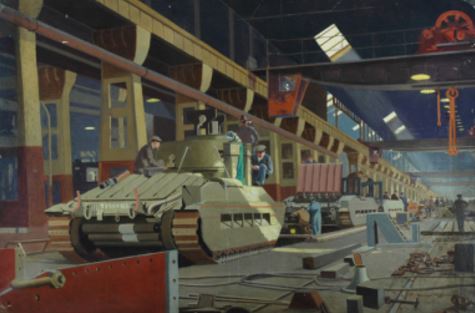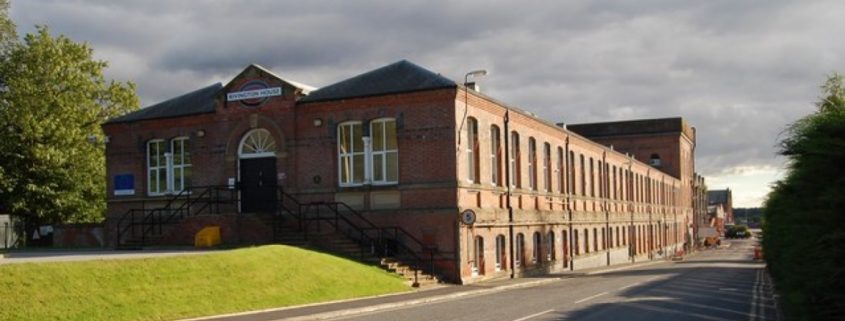OF CRITICS AND CRITIQUES and The Works by Paul Salveson
OF CRITICS AND CRITIQUES
by Norman Warwick
In a book that our friend Michael Higgins says ´brings laughter and tears´, he found much to enjoy. Being fictively based on fact the book contains much of the kind of historical information Michael loves and employs to inform his own writing. Furthermore, some dialogue and the delivery of these facts and speculations are ´spoken´ in the Lancashire dialect still loved and perpetuated by his fellow members of Rochdale Edwin Waugh Dialect Society, named after one of the area´s most loved dialect poets.

The book, called The Works, written by Paul Salveson is, Michael suggests, much more than a history book with some interesting dialect in its vocabulary, for this ´feel-good book´ also, he says, teaches history,….all about boilers, steam-guages and foundries. There is also both humour and pathos in the text, Michael tells us. even as he flags up some occasional bad language.
Salveson, with a PHD in Lancashire Dialect Literature, is a well known writer on these topics and landscapes and is a regular and versatile speaker around the North West of the UK. He even spoke at a meeting or two of Heywood Horticultural Society, joining an illustrious list of speakers including my uncle Bill, under his full name of William Bell Bee-Keeper, and a certain Norman Warwick, a brilliant local poet, though nobody in the group had ever heard of me, despite my wife being chair of the Society.
The author of The Works has had a long association with railways and with politics, that began with his early employment as a railway worker at Horwich Locomotive Works (HLC) in the nineteen seventies, from which his career progressed to undertaking various ´senior rail-industry roles´.
It is perhaps no surprise, then, that his novel imagines the survival of the Locomotive works in Horwich beyond its actual closure in 1983 and there is enough here to interest even those who do not remember the economic strife of that era. Salveson´s book envisages the workers forming a co-operative to protect it against the British Rail closures and privatisations of the Thatcher years.
The fictional narrative of The Works closes before coronavirus could arrive to threaten rail passenger services all over again, and Michael´s is a pretty positive, yet obviously considered, review.

However, Michael´s review might not be ´considered´ enough to please The Morning Star, a newspaper that considers itself the voice for peace and socialism. It steps into the ring swinging, with a paragraph that the writer, Paul Simon, might feel heaps vitriol on Salveson.
The reporter describes The Works as ´Paul Salveson’s apologia for his journey from being a member of the Communist Party of Great Britain (CPGB) to a recent recipient of an MBE.´
There is only thinly-veiled disdain in the reviewer´s observation that the author has, ´whether by steam, diesel or green technology, travelled a long way from his political roots and clearly has a conscience that needs pacifying.´
Conceding that the book is, of course, a work of fiction, The Morning Star says that its semi-autobiographical structure gives the author a platform to ´belittle´ Communist Party members Of Great Britain who protested against ´corrosive and ultimately failed Euro-communist wing of the party.´
The reviewer suggests Salveson is guilty of creating an alternative history of the HLC.
Based near Bolton, (very close to the site of the new home of Bolton Wanderers Football Club, still clinging to their own historic identity whilst tumbling down, and very nearly out of, The English Football League), HLC was once a major locomotive and rolling-stock construction and repair facility until closing in the 1980s. Our cover photo shows the site whilst the building stood there.

Horwich Locomotive Works. built in 1885 by the Lancashire and Yorkshire Railway in Horwich, near Bolton, became most famous for building locomotives. What it is less well known for is its role in WW1 and WW2. (see left)
In World War One it manufactured weapons, including Howitzer guns and over two thousand shells a week. In the Second World War, the works built nearly 500 Cruiser, Centaur and Matilda tanks as well as shells, and parts for planes and guns.
But The Works, in looking back from a fictional 2025, presents a sequence of events that exist so distant from the possibilities presented by the capitalist establishment from those eighties onwards, that it ´mutates into a mere flight of the author’s own fancy´.
The Morning Star describes what it calls the political score-settling in The Works as ´merely tiresome´ but one particular incident is described in a way that certainly upset Mr. Simon is one that sees a member of the Communisty Party Great Britain reminding the local party meeting of Lenin’s fundamental reservations about co-operatives under capitalism. The man is quickly isolated and ignored.
But the re-imagined outcomes following the closure — expressed in the setting up of a workers’ co-operative tacitly backed by senior civil servants, the local Tory MP and all manner of railway enthusiasts with cash to burn — stretch credulity, according to The Morning Star´s review.
The review even goes on to suggest that at one level, ´The Works reads like a first draft of an Ealing comedy script, with some cracking social observation undermined by a sickly romanticism.´
The book’s protagonist, David Horrocks, has left university early and joins the Horwich Works as a shopman and through that Salveson is impressive in describing the daily routines of the factory and in capturing the feeling of solidarity between the different departments as the works are earmarked for closure.
The Morning Star, perhaps somewhat grudgingly, details how Salveson very movingly describes the parallel and growing personal and political relationship between Horrrocks and Midge Wrightson, a union activist in the typing pool who grows into a key force in the establishment of the co-operative itself, and the wider socialist movement.
In summation, the reviewer concedes that the novel is an important record of working-class lives and is accompanied by historic photos of the works.
However, his final sentence is perhaps damning and dismissive in describing The Works as ´written in an unapologetic Lancashire dialect´. Furthermore, ´its rewriting of history is a disappointment.´
These two reviews, one almost wholly positive in The Rochdale Observer and one almost entirely negative in The Morning Star, might, in being so polarised lead you to the conclusion you must read The Works for yourself and make up your own mind.
The title is published by Lancashire Loominary for £12.99.
You can contact us at Sidetracks & Detours via normanwarwick22@yahoo.com with your own views and we will be happy to publish your thoughts with full attribution if you wish.




Leave a Reply
Want to join the discussion?Feel free to contribute!